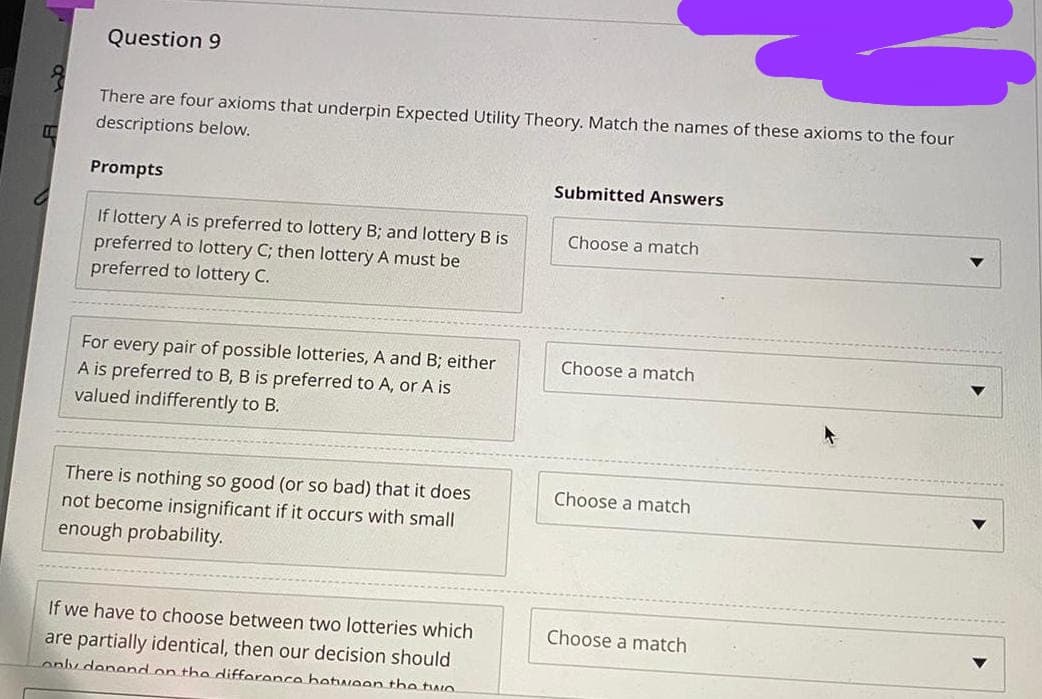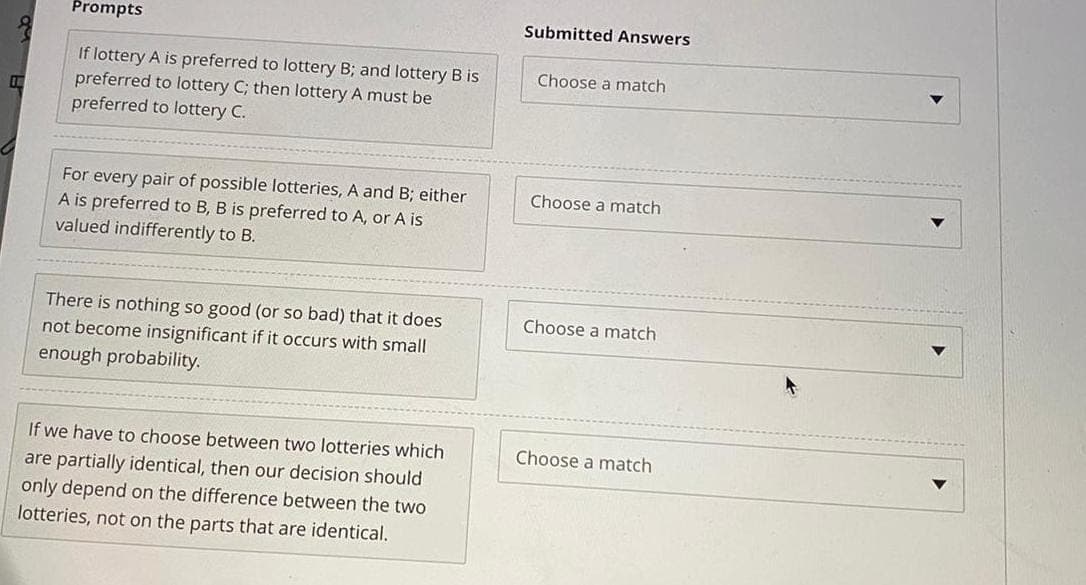There are four axioms that underpin Expected Utility Theory. Match the names of these axioms to the four descriptions below. Prompts If lottery A is preferred to lottery B; and lottery B is preferred to lottery C; then lottery A must be preferred to lottery C. For every pair of possible lotteries, A and B; either A is preferred to B, B is preferred to A, or A is valued indifferently to B. There is nothing so good (or so bad) that it does not become insignificant if it occurs with small enough probability. Submitted Answers Choose a match Choose a match Choose a match
There are four axioms that underpin Expected Utility Theory. Match the names of these axioms to the four descriptions below. Prompts If lottery A is preferred to lottery B; and lottery B is preferred to lottery C; then lottery A must be preferred to lottery C. For every pair of possible lotteries, A and B; either A is preferred to B, B is preferred to A, or A is valued indifferently to B. There is nothing so good (or so bad) that it does not become insignificant if it occurs with small enough probability. Submitted Answers Choose a match Choose a match Choose a match
Chapter7: Uncertainty
Section: Chapter Questions
Problem 7.11P
Related questions
Question

Transcribed Image Text:10
Question 9
There are four axioms that underpin Expected Utility Theory. Match the names of these axioms to the four
descriptions below.
Prompts
If lottery A is preferred to lottery B; and lottery B is
preferred to lottery C; then lottery A must be
preferred to lottery C.
For every pair of possible lotteries, A and B; either
A is preferred to B, B is preferred to A, or A is
valued indifferently to B.
There is nothing so good (or so bad) that it does
not become insignificant if it occurs with small
enough probability.
If we have to choose between two lotteries which
are partially identical, then our decision should
only donand on the difference hotween the tw
Submitted Answers
Choose a match
Choose a match
Choose a match
Choose a match

Transcribed Image Text:I
Prompts
If lottery A is preferred to lottery B; and lottery B is
preferred to lottery C; then lottery A must be
preferred to lottery C.
For every pair of possible lotteries, A and B; either
A is preferred to B, B is preferred to A, or A is
valued indifferently to B.
There is nothing so good (or so bad) that it does
not become insignificant if it occurs with small
enough probability.
If we have to choose between two lotteries which
are partially identical, then our decision should
only depend on the difference between the two
lotteries, not on the parts that are identical.
Submitted Answers
Choose a match
Choose a match
Choose a match
Choose a match
Expert Solution
This question has been solved!
Explore an expertly crafted, step-by-step solution for a thorough understanding of key concepts.
This is a popular solution!
Trending now
This is a popular solution!
Step by step
Solved in 2 steps

Knowledge Booster
Learn more about
Need a deep-dive on the concept behind this application? Look no further. Learn more about this topic, economics and related others by exploring similar questions and additional content below.Recommended textbooks for you

